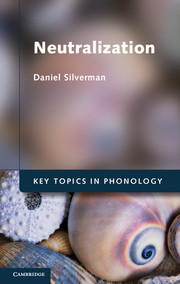17 - Prosodies
Published online by Cambridge University Press: 05 November 2012
Summary
As Firth does not cite Trubetzkoy's discussion of boundary signals in his 1948 “program paper” on “prosodies” (though he is clearly aware of Trubetzkoy's writings, mentioning them in passing), we may assume he felt his approach to be sufficiently different from Trubetzkoy's that no citation was necessary (in his 1957a paper on prosodies, Robins, however, does indeed refer to Trubetzkoy's pioneering work, as well as to the American construct, “juncture phoneme”). Indeed, Firth's “prosodic analysis” approach is more ambitious than Trubetzkoy's discussion of boundary signals, in that: (1) it calls for a strictly non-segmental approach to the elements that function as boundary signals, and in so doing lays out a game plan for phonological analysis that radically departs from the phonemic analyses earlier employed by Trubetzkoy and concurrently being advanced in a particularly rigid manner by American structuralists; and (2) it argues for the prosodic relevance of components that, in fact, do not function as boundary signals (though, as we'll see, in such cases, the notion of “prosody” gets a bit murky at times). In other ways, Firth's presentation is less ambitious than Trubetzkoy's, at least in the sense that its discussion of the supposedly relevant phenomena is at best scattershot and, at worst downright confusing, whereas Trubetzkoy's prodigious organizational skills were operating at their typical full capacity in his remarks on boundary signals.
As Firth's paper is difficult to interpret, what I hope to accomplish in this chapter is to extract what, for our purposes, are its most relevant aspects. For those familiar with the so-called London School that Firth spearheaded, it will become immediately clear that I am sometimes pruning – perhaps censoring – certain elements of the approach. At times, this censorship is employed in order to stay focused on the elements of prosodic analysis that are most relevant to our present concerns: neutralization and its role with respect to phonological reason. At other times, this censorship is employed in a (perhaps ill-advised and surely risky) attempt to increase the overall coherence of the theory, by ridding it of what might be extraneous elements; from “pruning”, to “censorship” to possible “misrepresentation” – wish me luck!
- Type
- Chapter
- Information
- Neutralization , pp. 174 - 187Publisher: Cambridge University PressPrint publication year: 2012

